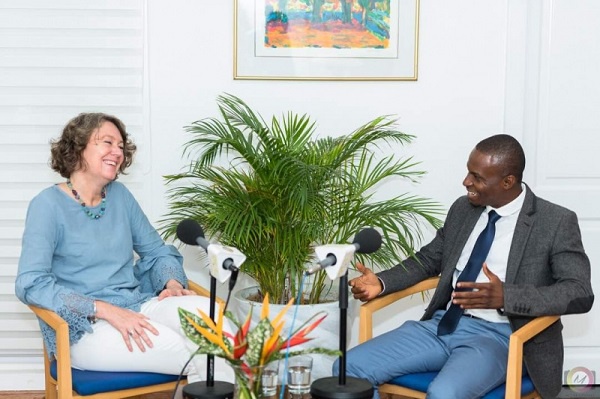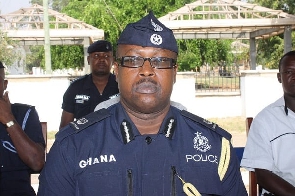Danish Ambassador to Ghana, Tove Degnbol, has disclosed her affection for ‘Kelewele’.
Responding to a question by Dr Etse Sikanku, host of Class 91.3FM’s World Affairs programme about her favourite Ghanaian dish, the Danish diplomat stated: “I like ‘kelewele’”.
‘Kelewele’ is a popular Ghanaian food made of fried plantain seasoned with spices. In English, it is sometimes referred to as Hot Plantain. ‘Kelewele’ is usually sold at night in Accra by street vendors and sometimes in the afternoon by the country side women
It can be served with beans stew, peanuts or alone as a dessert. Kelewele is also a popular choice for dinner. Originally from Ghana, ‘kelewele’ has been popularised in America by several recipe books including Recipezaar.
Ms Degnbol discussed a myriad of issues including development cooperation between Denmark and Ghana.
She spoke about the need to curtail corruption, ways to improve government’s One-district-one-factory programme and moving from aid to strengthening investment and trade cooperation, among others.
She also indicated that Ghanaians should be able to experience the benefit of paying taxes to government, Danish Ambassador to Ghana, Tove Degnbol, has said.
According to her, if government is to achieve a 'Ghana beyond aid' there must be "much increased taxation” in order to generate domestic revenue to embark on all the developmental projects to improve on living conditions and the economy.
Ms Degnbol said it was important that "property tax is collected from those who can afford it, they are paying virtually nothing now and there is huge potential".
She wants an improved tax collection system by customs at the ports and harbours as well as improved and efficient collection of royalties from mining companies as well as a general broadening of the country's tax base.
She emphasised that taxes and levies imposed by government is directly related to “citizens seeing services being provided by the state…there has to be some correspondence. You don’t want to just pay tax and don’t get anything in return”.

She indicated that it was something that most countries have experienced or are still in the process of going through that “if citizens do not see the social services coming forward they are reluctant to pay tax but if they see the returns such as secondary education, proper functioning national health insurance system, such services are crucial to willingness of paying tax”.
She said in Denmark, they have a completely free education system “all the way to university and we even pay students to study…We have completely free healthcare system, complicated surgeries you get free because you pay your taxes. Roads, bridges, everything [is provided] but taxes are high. Depending on your income you can pay up to 60 percent of your income in tax, it is a progressive scale, the more you earn the more you pay”.
She further indicated that if development partners such as Denmark are scaling down on financial support for the country “the revenue (for government) must come from somewhere and there is still a need for funding” the education system, infrastructure, health etc.
In view of that Denmark has decided “to help strengthen the structures for generating this domestic revenue”.
She said they are working with the Ghana Revenue Authority (GRA) to “improve the tax base in Ghana and this is where I see that a lot can be done”.
She said “much increased taxation” will be her response as one of the conditions for attaining a Ghana Beyond Aid.
Entertainment of Saturday, 21 April 2018
Source: classfmonline.com

















